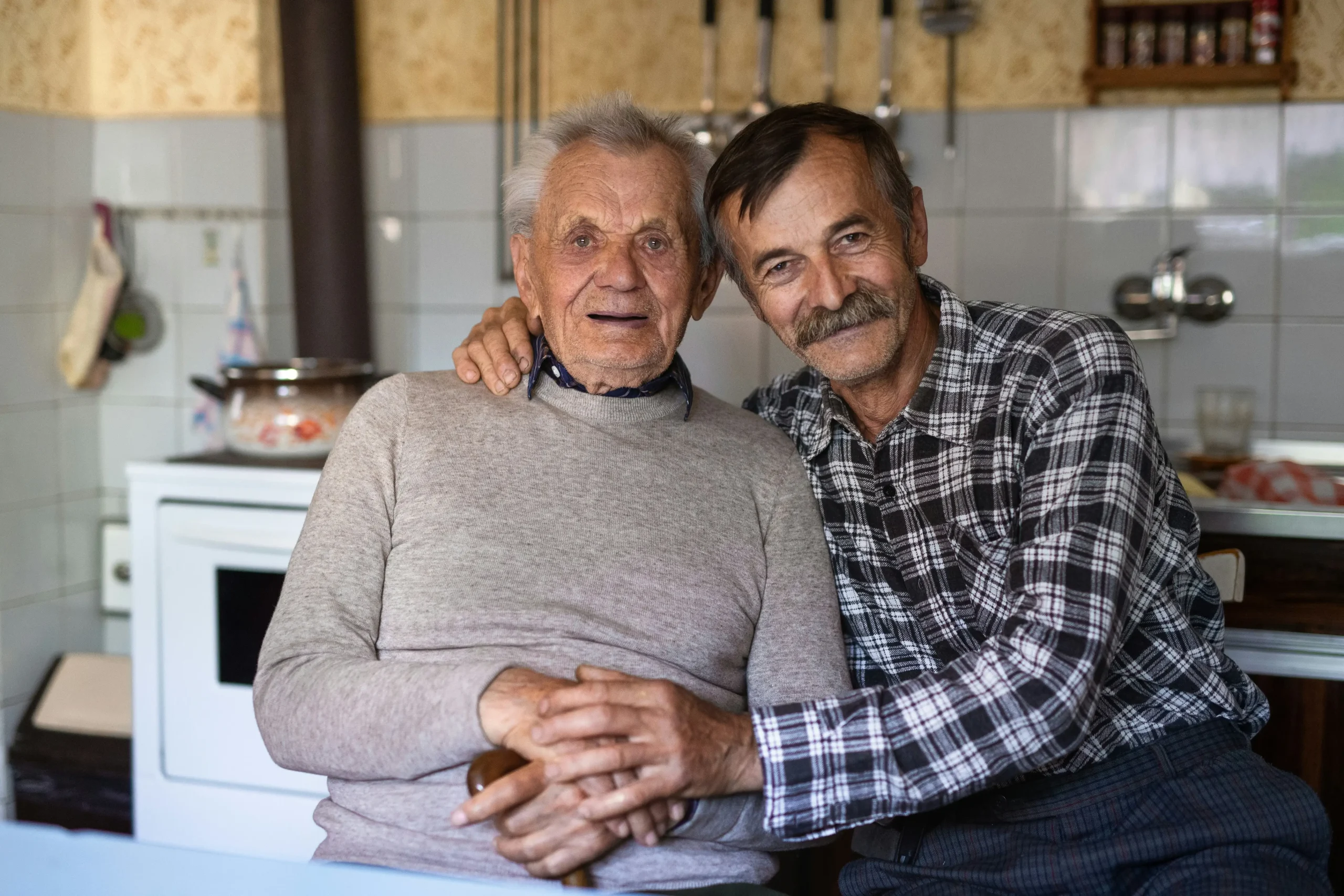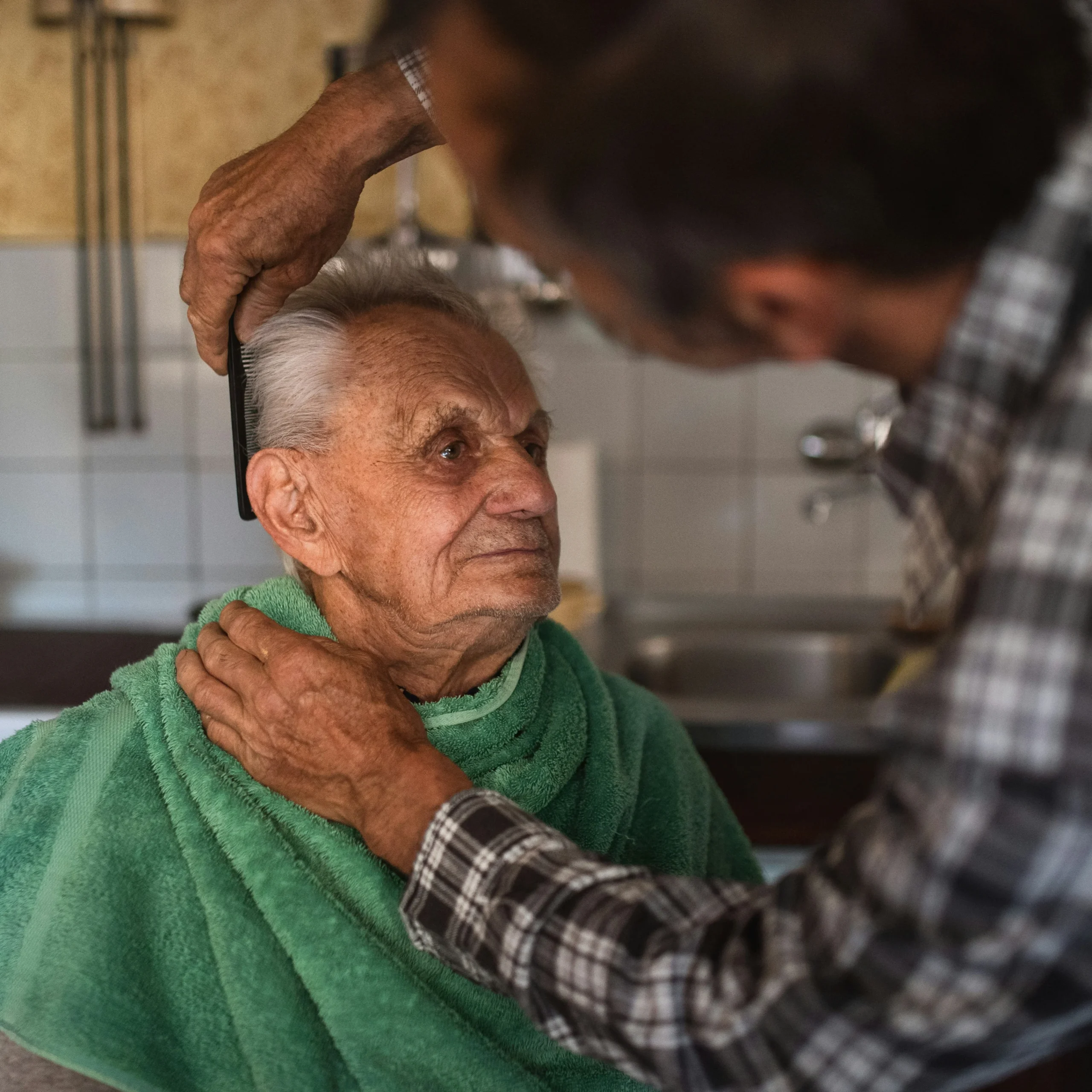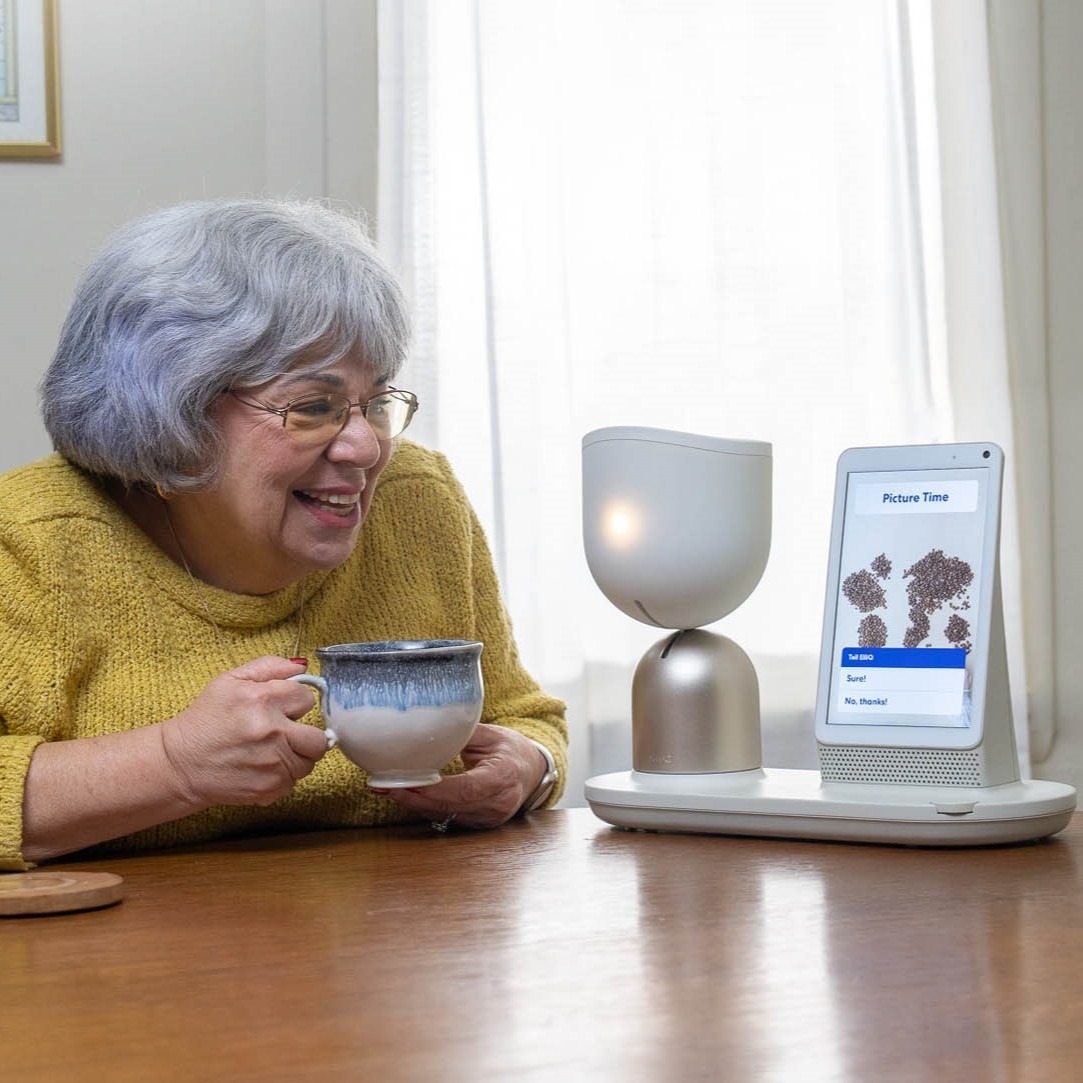
If we are fortunate enough to live a long life, it’s almost inevitable that we’ll require some form of senior care before we die. Senior care, also referred to as elder care, encompasses the broad range of services and supports specifically designed to meet the needs of older adults as they age in all facets of their lives, including physical, mental, emotional, social and personal health.
Senior care is founded on a primary goal: to ensure the well-being of aging individuals.
This can be achieved in numerous ways, depending on the condition of your senior loved one and what their personalized needs are. I wrote put together this senior care guide to help you research the industry and gather critical information to support your decision-making process. Here, you’ll gain a deeper understanding of elderly care, learn about the different types of services, gain insight into the benefits, discover how to effectively plan and prepare, and so much more.
Elderly support services span various forms of assistance, from complex medical and nursing care, right through to more simplified help with daily activities. Whatever the need, the care ensures that your senior loved one is safe, comfortable and benefiting from the highest possible quality of life.
Let’s take a closer look at the different areas of a person’s life and how elderly support services address each.

There may be regular check-ups, the treatment of illnesses, and the management of chronic conditions. Where nursing and rehabilitation are required, post-surgical care, physical therapy, Alzheimer’s care and assistance with illness or injury recovery can be provided.
To keep seniors physically active, services can provide encouragement, promotion and organization of physical activities throughout the day. This can be provided through at-home care and engagement within community programs, or at a senior care facility that has various activities taking place throughout any given day.
This can include activities and therapies for those with dementia or cognitive impairments, which focus on memory care and mental stimulation. If your family member has mental health issues such depression, anxiety or loneliness, there is counselling, therapy, and psychiatric care to help.
When there is limited mobility or compromised functional abilities, day-to-day responsibilities often become exceedingly difficult. Home help for the elderly can assist with bathing, dressing, eating and other personal hygiene tasks. A complete in-home care service can perform light housekeeping, laundry, cooking, and shopping to support your loved one’s independent living at home.
To keep older adults social, there are programs and activities that encourage regular interaction, community engagement and the maintenance of hobbies and interests. One-on-one companionship, counselling and support groups help seniors cope with changes in their lives and prevent feelings of isolation.
Does your loved one have their estate in order? Consider getting assistance with managing finances, estate planning, and understanding and utilizing their insurance and benefits. If there are any legal issues, your loved one can also receive support with their living will, power of attorney and guardianship arrangements.
If home modifications are necessary, senior in home care services can help you make changes to living spaces to improve safety and accessibility, such as the installation of grab bars, ramps and stairlifts. And for added safety and peace of mind, there are emergency response devices and services that ensure quick assistance for falls or medical emergencies.
Your senior loved one can receive meal preparation or delivery services that offer nutritious meals tailored to specific health needs and dietary preferences.
If your family member has a terminal illness or has reached the final stage of their life, consider palliative care (which focuses on relief from symptoms and stress to improve quality of life) and hospice care (which provides support for both the patient and the family, focusing on compassionate care and comfort).
As you work to determine what your aging loved one requires and what forms of care are ideal for him or her, remember that senior in-home care aims to cater to the particular needs of you and your family. The development of a personal care plan can help you achieve this.
There are numerous types of elderly care services available to Canadians, both inside and outside the home. The physical, emotional and mental state of your loved one, combined with your current family situation and finances, will ultimately unveil the best type of care and setting.
In Canada, every senior care service is either private, publicly funded by provincial health care systems or a combination of the two.
At-home care is typically divided into personal care, provided by Personal Support Workers who assist with daily activities like bathing, dressing, and eating, and home health care, which offers medical or rehabilitation services at home from doctors, nurses, and therapists.
Your senior loved one can attend adult day programs with social and recreational activities, health services and meals, providing respite for family caregivers and social interaction for seniors.
Assisted living is residential housing where seniors receive personal care services and support for daily activities, along with social and recreational opportunities. It’s ideal for aging adults who can live semi-independently with some assistance.
These are special homes that offer 24-hour nursing care, personal care and support services for seniors who require a higher level of assistance and supervision due to significant physical or cognitive impairments.
Designed for individuals with Alzheimer’s, dementia, or other memory impairments, memory care facilities offer specialized care environments that are secure and supportive settings with tailored activities and therapies.
A retirement home is a private residential community for seniors who can live independently or with minimal support, offering various levels of care and services like meals, housekeeping and recreational activities.
Offering relief to family caregivers, respite care is a short-term care service that can be provided in your senior’s home or in a facility. It can range from a few hours to several weeks and offers both personal and medical care options.
Both hospice and palliative care focus on providing comfort and quality of life. They are designed for those with terminal illnesses, providing pain management, and emotional and spiritual support in various settings such as the home, a hospice centre or hospital.
This care is ideal for low-income seniors and offers subsidized housing options, usually accompanied by additional support services, such as personal support workers, available on-site or through community agencies.
These facilities, also called CCRCs, offer a complete continuum of care, starting from independent living to assisted living and ultimately to long-term care. Each level of care is provided within a single community, allowing residents to transition seamlessly as their needs evolve.
When your senior loved one is well cared for, there are numerous benefits they stand to gain from the experience – not to mention advantages for you and your family, too.
Whether your loved one is in a facility or receiving help at home, trained medical professionals provide regular and consistent health monitoring and are there to give immediate medical attention when necessary. This prevents health issues from escalating and ensures that timely interventions are made as needed.
Many elderly support services include physical therapy services to help seniors with mobility issues or who are rehabilitating. Tailored nutrition plans and meals are available to provide older adults with the nutritious food they need to thrive in their golden years. Combined, these promote greater physical wellbeing for the aging population.
According to Healthy Aging in Canada: A New Vision, A Vital Investment, 67% of seniors who are active at least three times a week were found to be in good health, compared to 36% of those who are rarely active. The study notes that the physical, mental, and social benefits of regular activity are cumulative over time, especially when integrated into daily routines.
Public Health Agency of Canada
Senior care offers your loved one the opportunity to engage socially on a consistent basis, be it within a facility setting or through home care and community involvement. This alleviates feelings of loneliness and isolation and creates a sense of happiness and belonging.
Elderly care facilities typically have professionals on-site who specialize in geriatric psychology and can provide formalized support for various mental health issues such as anxiety and depression. This helps your loved one better cope with the challenges they face, contributing to their overall mental health and emotional stability.
A University of Manitoba study found that seniors who were more socially active had a 70% slower cognitive decline, a 43% lower risk of disability, and avoided the 33% faster loss of motor function seen in less socially active adults over five years.
Centre on Aging, University of Manitoba
In dedicated facilities, the environment is designed with safety in mind to prevent common accidents such as falls. At home, the same features can be installed to keep your loved one safe, including grab bars, non-slip flooring and emergency call systems. The end result is peace of mind for you and your family, knowing your senior is safe.
When your loved one is housed in a facility or if they have a full-time caregiver in their home, you can rest assured that someone is there to act fast in the event that they need emergency assistance.
Figuring out what’s best for your senior loved one can seem like an overwhelming task at first, but with enough time and a well-thought-out system the right answer will become clear.
Here’s a step-by-step guide to get you started.
Watch them. Care for them. Observe their actions and behaviours. Take them to the doctor for evaluation. Ultimately, determine their physical, medical, emotional, mental and social needs.
Do your due diligence and identify the different options available. Consider adult day programs, in-home care, assisted living and nursing homes. Cross-reference the various types of care with the needs of your elderly loved one and your family to uncover synergies and alignment.
Do a cost comparison of different types of senior care. Evaluate your options for insurance, public government-subsidized care, and private elderly services. Review what each provides and at what cost.
For home help, research different agencies in your area and ask if they provide the option to interview or meet caregivers. Ask about their experience, get a feel for their personality and values. If you’re visiting different facilities, ask for a tour, inquire about staff qualifications, see what their care plans look like, learn about emergency procedures and consider the location’s proximity to you and your family.
Want to cut out the agency and avoid the middleman? Check out MF Homecare!
Reach out to other family members and friends who are familiar with the caregiving process. Have open conversations with those who are assisting you in your decision. Balance the needs of your senior loved one with everyone’s preferences and the resources available. If possible, involve your senior in the decision-making process. And remember, whatever you decide today, nothing is set in stone. Senior care is flexible and accommodating. If changes need to be made, you can do so at a later date.
It’s a good idea to be as prepared as possible, even before your loved one actually requires care. This way, you are educated and informed about the options and process ahead of time, and can make quicker, better decisions in a less stressed state.
Here are a few tips to help you plan proactively.
New apps entering the market can help you tremendously in your research process. If you’re leaning towards at-home care, MF Homecare is an innovative app that accelerates the process massively and puts the control back in your hands at a much more competitive cost. You can connect with caregivers directly, who work for themselves and are ready to assist you immediately.
MF Homecare is an independent platform that lets families book caregivers in their area on demand, without the premiums of traditional care agencies.

Even though this industry is still somewhat run on antiquated processes, technology is making its way into the space. Here are a few tools that may be of use to you and your family.
These are streamlined and efficient platforms for healthcare professionals to collaborate and share information with real-time communication to reduce response times and improve decision–making processes.
Bridging the gap between patients and medical providers, these digital platforms and technologies enable the remote delivery of healthcare and related services through video conferencing, remote patient monitoring devices and digital health records.

Wearable technology is any devices that monitors and supports the health and wellbeing of seniors, such as smartwatches, fitness trackers and health monitors to track vital signs, physical activity, sleep patterns and falls.

Often AI-powered, these interactive devices are designed to provide companionship, support and assistance to seniors, engaging in conversation, helping with activities of daily living, giving medication reminders, and monitoring overall health and safety.
The introduction of these and other new technologies in the senior care industry is the start of positive change. The use of these tools can contribute to reduced wait times, more efficient care, proactive services to seniors and a more streamlined process as a whole.
As you go through the different stages of arranging senior care for your loved one, chances are you have experienced any number of challenges along the way. See if you can relate to any of the following issues and learn about potential solutions that may be able to help.
Finances are always a common challenge. It’s natural to feel the pressure of costs and expenses required to care for your senior, which is why it’s critical that you do your research and due diligence in order to identify all the options available to you. This way, you can compare services and costs and arrive at a care solution that strikes the right balance.
If you’re the one providing supplemental care to your loved one, you’re probably burnt out. This is a very real struggle among family caregivers, and one that you must acknowledge and be aware of. Consider respite care to give you some relief. Make time for yourself. Take advantage of your own personal support network. And get professional counselling to help you process everything you’re going through.
Some families exploring senior care feel that services fall short when it comes to understanding and addressing their diverse backgrounds, languages and traditions. Expand your search. Ask important questions about cultural and spoken languages in interviews and facility walk-throughs. Canada is a multicultural country, and there are a variety of care options to meet the cultural and linguistic needs of seniors.
Whether you’re there now or not just yet, there may come a time when you and your family need to consider hospice or palliative care for your senior loved one. When the focus no longer becomes cure, but rather comfort and dignity, one of these options is usually best. That doesn’t mean it’s easy, though. This can be extremely difficult for families to face. Consider different settings. Research the options. Evaluate your senior’s wishes and current condition. And speak to professional care teams who can give you advice and guide you in the most appropriate direction.
Moving forward, we are likely to see caregivers, healthcare providers and families collaborating and innovating like never before. Ultimately, this will result in care provided to our elderly population that is not only effective but also compassionate and dignified. I invite you to explore, research and educate yourself to better understand senior care and its capacity to meet the multifaceted needs of your aging loved ones. As you go through the process, remember that quality, reliability, respect and empathy are top priority. When these are your guiding lights, making the best decision is that much easier.
Lorem ipsum dolor sit amet, consectetur adipiscing elit. Ut elit tellus, luctus nec ullamcorper mattis, pulvinar dapibus leo.
“Healthy Aging in Canada: A New Vision, A Vital Investment.” Public Health Agency of Canada, 2006.
“Social Participation and Its Benefits.” Centre on Aging, University of Manitoba, August 2013.
“Active Aging in BC Communities: Case Studies of Community Actions.” Government of British Columbia, 2008.